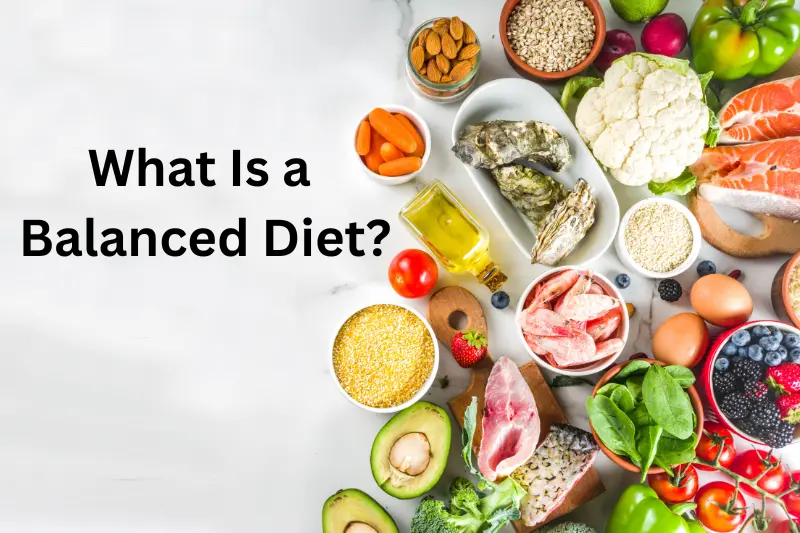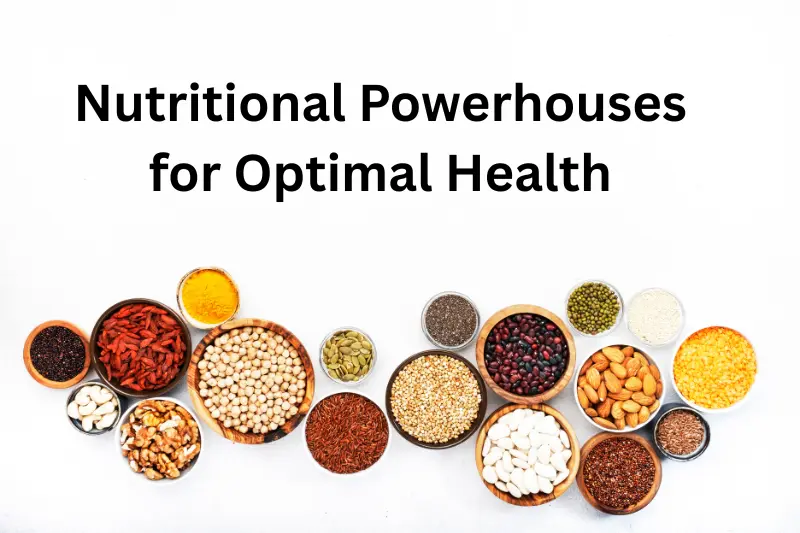Living a vibrant, energetic life starts with the choices we make every day—especially what we eat and how we care for our bodies. A balanced diet and healthy living aren’t just about looking good; they’re about feeling strong, mentally sharp, and full of vitality. In this comprehensive guide, we’ll explore everything you need to know to transform your lifestyle, from the best foods to eat to simple habits that boost longevity. By the end, you’ll have a clear roadmap to achieving balanced diet and healthy living—one that fits seamlessly into your daily routine.
What Is a Balanced Diet?

A balanced diet provides all the essential nutrients your body needs to function optimally. It’s not about strict restrictions but about nourishing yourself with the right proportions of:
Key Components of a Balanced Diet
- Proteins – The body’s repair crew (0.8g per kg body weight minimum). Include diverse sources like wild-caught fish (rich in omega-3s), pasture-raised eggs (complete proteins), and plant-based options like tempeh and quinoa
- Carbohydrates – Your primary energy currency. Focus on low-glycemic options like sweet potatoes, ancient grains, and fiber-rich fruits that provide sustained energy without blood sugar spikes
- Healthy Fats – Critical for hormone production and brain function. Prioritize anti-inflammatory sources like extra virgin olive oil, wild salmon, and avocado over processed vegetable oils
- Vitamins & Minerals – The spark plugs of metabolism. Dark leafy greens provide magnesium for relaxation, while Brazil nuts offer selenium for thyroid support
- Fiber – The gut’s best friend. Aim for 30g daily from diverse plant sources to feed your microbiome
- Hydration – Often overlooked, proper water intake (about 35ml per kg body weight) affects everything from cognitive function to joint health
A balanced diet and healthy living approach recognizes that food isn’t just calories—it’s information that programs your cells, hormones, and even gene expression for better or worse.
The Comprehensive Pillars of Healthy Living
Nutrition forms just one piece of the wellness puzzle. True healthy living integrates multiple evidence-based dimensions:
1. Movement as Medicine
- Strength training preserves muscle mass (critical for metabolic health as we age)
- NEAT (non-exercise activity thermogenesis) like walking can burn hundreds of extra calories
- High-intensity interval training boosts mitochondrial efficiency
- Mobility work prevents the “sitting disease” prevalent in modern life
2. Sleep Optimization
- Deep sleep phases trigger cellular repair and memory consolidation
- Circadian rhythm alignment (consistent sleep/wake times) regulates hunger hormones
- Sleep deprivation directly correlates with increased cravings and weight gain
3. Stress Resilience Practices
- Chronic stress elevates cortisol, driving abdominal fat storage
- Breathwork (like 4-7-8 breathing) activates the parasympathetic nervous system
- Nature exposure lowers inflammatory markers
4. Toxin Reduction Strategies
- Endocrine disruptors in plastics and cosmetics interfere with metabolism
- Air purification reduces inflammatory particulate exposure
- Dry brushing and infrared saunas support the body’s detox pathways
This multidimensional approach to balanced diet and healthy living creates powerful synergy—where each positive habit amplifies the benefits of others.
Nutritional Powerhouses for Optimal Health

These scientifically-validated superfoods deliver exceptional nutrient density:
Leafy Greens (Spinach, Kale, Swiss Chard)
- Contain unique compounds like sulforaphane (potent anti-cancer effects)
- Rich in nitrates that improve blood flow and endurance
- Provide folate crucial for methylation (DNA repair processes)
Colorful Berries (Blueberries, Blackberries, Raspberries)
- Anthocyanins protect against oxidative stress and cognitive decline
- Ellagic acid supports the body’s natural detoxification systems
- Low sugar content makes them ideal for metabolic health
Omega-3 Rich Foods (Wild Salmon, Sardines, Walnuts)
- EPA/DHA fatty acids reduce systemic inflammation
- Critical for brain structure and function
- Improve insulin sensitivity and body composition
Fermented Foods (Kefir, Kimchi, Sauerkraut)
- Probiotics enhance gut barrier function (preventing leaky gut)
- Increase nutrient absorption from other foods
- Produce mood-boosting neurotransmitters like serotonin
Adaptogenic Herbs (Ashwagandha, Rhodiola, Ginseng)
- Help the body adapt to stress more effectively
- Support adrenal gland function
- Improve energy production at the cellular level
Advanced Lifestyle Optimization Strategies
Metabolic Flexibility Training
- Cyclical ketosis for cognitive benefits
- Cold exposure to activate brown fat
- Time-restricted eating for autophagy
Neurological Enhancement
- Dual n-back training for working memory
- Binaural beats for focus states
- Photobiomodulation for brain energy
Environmental Engineering
- Earthing for inflammation reduction
- Red light therapy for cellular energy
- Negative ion generators for mood
Cutting-Edge Health Monitoring

Biomarker Tracking
- Continuous glucose monitoring for metabolic insight
- HRV (Heart Rate Variability) for stress resilience
- Omega-3 index for inflammation status
Microbiome Analysis
- Gut zoomer tests for dysbiosis patterns
- SIBO breath testing for digestive issues
- Fungal overgrowth assessments
Genetic Insights
- Nutrigenomic testing for personalized nutrition
- MTHFR status for methylation support
- APOE genotype for fat metabolism
Sustainable Implementation Strategies
Behavioral Psychology Techniques
- Implementation intentions (“If X happens, I’ll do Y”)
- Temptation bundling (pairing habits with rewards)
- Environmental design for automatic good choices
Community Support Systems
- Accountability partnerships
- Mastermind groups
- Digital detox challenges
Lifelong Learning Approach
- Regular health education updates
- Experimentation mindset
- Data-driven self-quantification
Final Thoughts: Your Journey Starts Now
A balanced diet and healthy living isn’t a short-term fix—it’s a lifelong commitment to feeling your best. Start with small, manageable steps, listen to your body, and enjoy the process. Whether it’s swapping soda for water, adding more veggies to meals, or taking a daily walk, every positive choice brings you closer to optimal health. Ready to transform your life? Embrace balanced diet and healthy living today—your future self will thank you!
Frequently Asked Questions
What exactly counts as a balanced diet?
A balanced diet includes all essential nutrients in proper proportions: proteins (lean meats, beans), healthy carbs (whole grains, fruits), good fats (avocados, nuts), plus vitamins, minerals, and plenty of water. It’s not about perfection but consistently nourishing your body with diverse, whole foods.
How can I start eating healthier without feeling overwhelmed?
Begin with small swaps—replace sugary drinks with water or herbal tea, add veggies to every meal, and choose whole grains over refined ones. Lasting change happens gradually, so focus on progress, not perfection.
Do I need to exercise if I eat healthy?
Yes! Diet and exercise work together—nutrition fuels your body, while movement strengthens muscles, boosts metabolism, and improves mental health. Even daily walks make a big difference.
Can a balanced diet help with weight loss?
Absolutely. A nutrient-rich diet regulates hunger hormones, reduces cravings, and supports metabolism. Combined with portion control and activity, it promotes sustainable weight management.
What’s the biggest mistake people make with healthy eating?
Extreme restriction. Cutting out entire food groups or following fad diets often backfires. Instead, focus on balance, moderation, and enjoying food while prioritizing nutrition.





